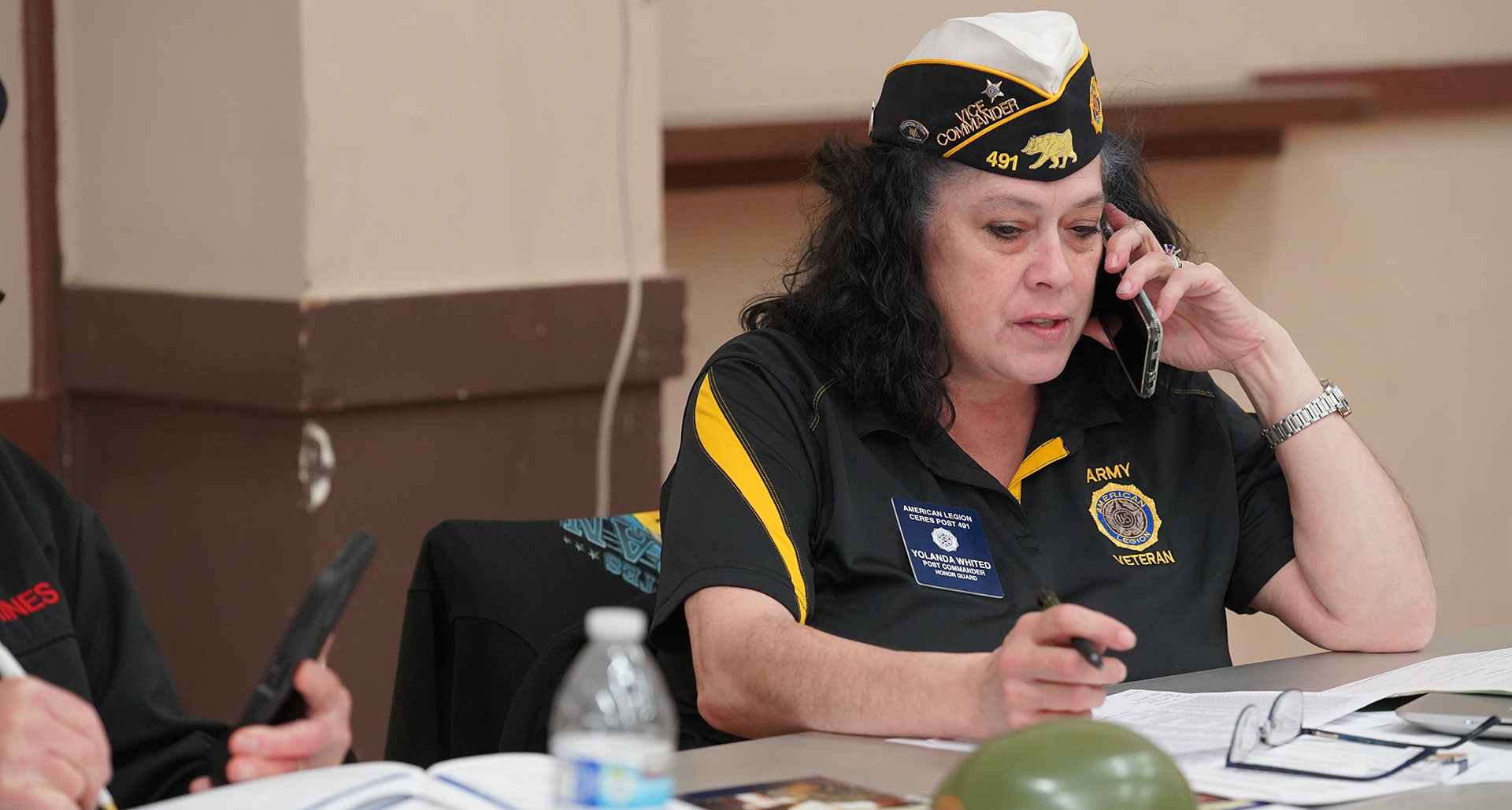
The VA’s Compassionate Contact Corps is looking for volunteers to support its virtual program that incorporates three of the Legion’s programs.
The Department of Veterans Affairs has a program that aligns with three important programs of The American Legion – Be the One, Buddy Checks and USA 250 Challenge.
The Compassionate Contact Corps (CCC) program addresses veteran loneliness and isolation by matching a trained VA volunteer with a veteran. The volunteer calls their matched veteran once a week to provide conversation and companionship. Through this, CCC incorporates The American Legion’s Be the One veteran suicide prevention and Buddy Check programs by caring for the mental well-being of veterans, and supports community service through volunteerism for the USA 250 Challenge that celebrates the nation’s 250th birthday next year.
If you haven't already, register for the Challenge and count your volunteer hours with CCC as part of the community service or mental health categories.
CCC was launched in March 2020 during the COVID-19 pandemic to address veteran loneliness and isolation. It started in eight VA facilities and has grown to 124 with hundreds of volunteers making thousands of phones calls a year.
CCC “offers you a chance to extend your impact for something that might seem simple but is profoundly powerful human connection,” said Dr. Prince Taylor, deputy director of VA’s Operations Center for Development and Civil Engagement,” during a VSO call on July 16. “This program allows you to address a challenge that affects veterans across all demographics and circumstances. This isn’t just volunteering. This is extending the brotherhood and sisterhood of miliary service to veterans who need it most.”
Taylor considers CCC a suicide prevention program as he said data shows that someone is three times more likely to have suicidal ideation with loneliness, and that loneliness can increase your chance of stroke and heart disease by 30%, developing dementia, and the likelihood of early mortality by 20%.
Meanwhile, data shows that CCC is decreasing loneliness as 83% of veterans engaged in the program reported feeling less lonely, and 78% reported it increased their well-being. Veterans interested in being matched with a CCC program volunteer must be referred by their VA clinician or social worker.
“Most of the veterans that are referred to the program aren’t necessarily on the clinical side of needing some help with depression or anxiety, or anything like that. This is really sort of pre-clinical as much as possible. Unless there is some mild depression or mild anxiety,” Taylor said. “We try not to put our volunteers in any risky situations, but we do try to prepare them in case something is elevated. The main thing is that we want them to make meaningful connections.”
Comprehensive training is provided to CCC volunteers. Training focuses on confidentiality, active listening skills, privacy, empathy, compassion, support, healthy boundaries, suicide prevention through VA S.A.V.E. training, and how to intervene in an escalated situation. Taylor said maintaining health boundaries is important “because we find it’s part of being a vet, but part of caring for veterans is that we want to help and we want to do more. But for a program like this there are things that we don’t want you to do. We don’t want you putting yourself in certain positions. We do want you letting us know if we need to intervene.”
Taylor added that CCC volunteers cannot give clinical, spiritual, legal or financial advice to veterans.
Volunteers make phone calls once a week that can be anywhere from 15 to 60 minutes. “We are not prescriptive with it. What we’ve found is that the veterans just really appreciate hearing from someone. We’ve gotten feedback where a lot of veterans will say, ‘You are the only person who calls me every week.’”
And there is no time limit on how long you need to be a volunteer. “You do it for as long as you want,” Taylor said. “We’ve had veterans and volunteers take breaks and come back. It’s about serving the veterans need … not mine, not VA’s.”
To become a Compassionate Contact Corps volunteer, contact your local VA Center for Development & Civic Engagement, formerly known as VA Voluntary Service.
“Your volunteer service isn’t just helping individual veterans,” Taylor said. “You’re actually part of a movement with how VA is addressing isolation and loneliness and connection in healthcare.”
- Veterans Healthcare

